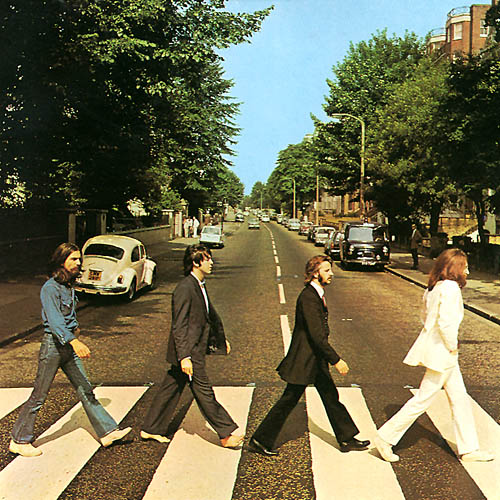
Abbey Road (1969)

1.Come Together
2.Something
3.Maxwell's Silver Hammer
4.Oh! Darling
5.Octopus's Garden
6.I Want You (She's So Heavy)
7.Here Comes The Sun
8.Because
9.You Never Give Me Your Money
10.Sun King
11.Mean Mr. Mustard
12.Polythene Pam
13.She Came In Through the Bathroom Window
14.Golden Slumbers
15.Carry That Weight
16.In The End
17.Her Majesty
Though not the final Beatles album to be released, Abbey Road holds the distinction of being their last cohesive studio effort—recorded after the tumultuous Let It Be sessions but issued before them. By the summer of 1969, the fractures within the group were no longer subterranean. Business disputes, artistic divergences, and sheer emotional exhaustion had made continued collaboration nearly impossible. Yet somehow, improbably, Abbey Road emerged not as a swan song of resignation, but as a remarkable final flourish—polished, elegant, and at times transcendent.
Producer George Martin, whose relationship with the group had been strained during the White Album, returned under one condition: that the band allow him to oversee the sessions with the discipline and respect of earlier years. Whether out of nostalgia, pragmatism, or exhaustion, the Beatles agreed—and the result was an album that masked internal chaos with external sophistication.
The record is, in effect, bifurcated. The first half offers a series of standalone tracks, several among the strongest in the Beatles’ catalogue. Lennon’s Come Together, with its swampy groove and cryptic lyrics, opens proceedings with uncharacteristic menace. Harrison contributes two masterpieces: Something, a ballad of aching sincerity and impeccable melody, and Here Comes the Sun, a radiant burst of optimism written in Eric Clapton’s garden while Harrison played hooky from Apple boardroom battles. These songs alone would justify the album’s reputation.
McCartney’s offerings include the vintage-style Maxwell’s Silver Hammer, a jaunty murder ballad whose cheerful arrangement belies its macabre lyric. Its inclusion has long divided critics, and was reportedly resented by both Lennon and Harrison. Oh! Darling, by contrast, is a full-throated homage to 1950s rock ’n’ roll, delivered with theatrical passion and emotional heft. Ringo Starr, in only his second songwriting contribution to the Beatles canon, offers Octopus’s Garden, a light-hearted aquatic fable that reprises the charm of Yellow Submarine, with far more grace than one might expect from its premise.
The second half of Abbey Road is perhaps its most celebrated feature: the medley that stretches from You Never Give Me Your Money to The End. Initially composed of song fragments—unfinished sketches, melodic experiments—the sequence was sculpted by McCartney and Martin into a seamless suite. Its orchestration, thematic callbacks, and melodic flow transformed disparate parts into a unified whole. In retrospect, it is difficult to imagine these pieces standing alone; together, they form one of the most innovative album closings in rock history.
Golden Slumbers, Carry That Weight, and The End—the climactic trio—blend nostalgia, bombast, and finality with remarkable poise. It is easy to view these as a deliberate farewell, particularly the famous couplet “And in the end / the love you take is equal to the love you make.” Whether intentional or not, it became their closing statement as a band.
Then, in a final sleight of hand, Her Majesty arrives—17 seconds of abrupt, tongue-in-cheek coda, originally cut from the medley but accidentally reattached by a tape operator. It was left on the record as a hidden track, an act of whimsy that became a legend in its own right. When Abbey Road was first issued on CD in the 1980s, many listeners returned their copies thinking the disc had been mispressed.
Abbey Road is not flawless—its emotional unity is illusory, and some of its content (particularly Maxwell’s Silver Hammer) strains under repeated listens. But as a whole, it is astonishing: an album that gives the appearance of closure even as the band was disintegrating. For many, it remains the finest encapsulation of their combined talents, an elegant exit from a story that had long since grown unwieldy.